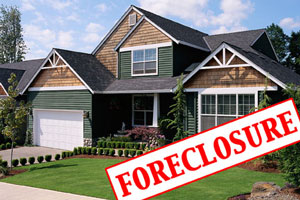Lawmaker tries to help foreclosure crisis victims
- Credit Card Debt: The next consumer crisis? (FCN, 05-20-2008)
- Jackson’s Wall St. rally spotlights mortgage crisis (FCN, 01-08-2008)

INGLEWOOD, Calif. (FinalCall.com) – More than 100 people filled the Inglewood High School auditorium in mid-May, hoping to leave Congresswoman Maxine Waters’ mortgage foreclosure town hall meeting with real plans to help them save their homes, or at least, with a better understanding of the foreclosure crisis.
“I’m extremely concerned about foreclosures and their impact on my district and the nation as a whole. A lot of people are suffering alone, not telling anybody what’s happening, and they’re just walking away from their homes. We’re trying to get them not to do that and to call us because when the community starts to recognize that there’s a scheme going on, mortgage brokers in the neighborhood trying to get people to refinance and sign, the whole community can come together behind that and put some of these people in jail,” Rep. Waters told the Final Call.
In her 35th Congressional District, which includes South Los Angeles and Inglewood, there are 640 properties in pre-foreclosure, 301 in the auction process and 581 properties that are owned by the bank. In Inglewood alone there are 335 properties in some stage of the foreclosure process and worth over $95 million, Rep. Waters said.
Along with representatives from the non-profit HomeFree-USA and the Multicultural Real Estate Alliance of Urban Change, Bank of America, Washington Mutual, Countrywide and Wells Fargo Bank, the Democrat talked about sub-prime and adjustable rate mortgages, loan modifications and the difference between predatory lending and legitimate lending.
The session highlighted three pieces of legislation designed by Rep. Waters and other federal lawmakers to help people save their homes and stabilize neighborhoods to reduce blight and crime. The proposed legislation includes:
– H.R. 5679–(Foreclosure Prevention and Sound Mortgage Servicing Act) would prevent further foreclosures by forcing servicers to make it easy for borrowers to find and get help with mortgage problems.
– H.R. 5818–(Neighborhood Stabilization Act) provides $15 billion to the U.S. Department of Housing and Urban Development to help purchase and rehabilitate owner-vacated, foreclosed homes. The money is allocated to areas hardest hit by foreclosures and subprime loans, and all housing must be affordable to low income families;
– H.R. 5830–(FHA Stabil-ization and Homeownership Retention Act) would allow FHA to provide up to $300 billion in new guarantees to help refinance 1.5 million at-risk borrowers at a reduced price.
“These bills are forcing the Congress to have to deal with this problem … we’re trying to teach them that many people who got into these loans didn’t simply make bad decisions. They were tricked into these loans!” the outspoken congresswoman declared.
The tricks included writing loans out of the back of trunks without documents, signing borrowers up for loans they could not afford through misinformation, refinancing homes elderly homeowners had already paid for and even submitting loan documents signed by brokers instead of homeowners, Rep. Waters said.
Part of the problem was the loans were bundled up and sold to Wall Street, but not separated as promised into good risks, not so good and risky loans, she explained. Wall Street and the lenders were greedy because they did not have to hold the properties on their books for the most part, Rep. Waters said.
Another part of the problem is that Black communities are too cooperative with financial institutions because they contribute to non-profit groups and churches, but people should better monitor their neighborhood practices, Rep. Waters said May 17.
“Probably the most striking aspect of this in California is that a similar cycle occurred a little over a decade ago, and although certainly some people saw the signs of this one coming, many people disregarded the red flags in favor of believing that the housing prices would continue to rise in perpetuity even though those housing prices were becoming (too high) for most people,” said Daren Blomquist, RealtyTrac Marketing communications manager.
Yolanda Clark, president of the Multicultural Real Estate Alliance of Urban Change, which was established after the 1992 Los Angeles uprising to combat redlining in South Central neighborhoods, said not all homeowners need loan adjustments. They need jobs to help pay their mortgages, said Ms. Clark. “We have to stop sending our loss mitigation overseas. It is causing a deficit of jobs in the community, giving jobs over there when they’re needed here,” she said.
Marcia Griffin of HomeFree-USA encouraged homeowners not to be embarrassed and get help that is available. “In our lives there are peaks and valleys and without question we have to wrap our arms around each other, get informed, develop resources and figure out how we’re going to overcome our valleys,” she said. Ms. Griffin told The Final Call the first thing homeowners should find out about any foreclosure service is whether or not they are HUD approved, and if they charge a fee, do not use them.
Outside of the school, John Parker of the International Action Center collected signatures for a petition asking Gov. Arnold Schwarzenegger to declare a state of emergency and place moratorium on foreclosures within California. The resolution, which was initiated by a block club, is pushing for financial assistance to families who have lost homes since 2006; prevention of further foreclosures; and help with finding housing for any families left homeless by foreclosures since 2006.
“These subprime loans were part of a racist campaign that targeted Black, Latino and even poor White communities. The only way to get the politicians moving is if people apply pressure on them,” Mr. Parker said.












